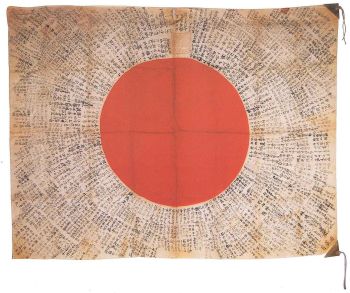Japanese Artifact Expert To Lecture At Florida Tech Tuesday
By Space Coast Daily // October 15, 2012
Open to the public
BREVARD COUNTY • MELBOURNE, FLORIDA – Private collector and lecturer Dr. Michael Bortner will be the guest of Florida Institute of Technology this week as part of the Friends of Textiles Lecture Series.

He will appear at 6 p.m. Tuesday in the Denius Student Center’s Hartley Room on campus. The lecture will be preceded by a reception at 5:15 p.m.
Bortner has been a collector of Japanese military textiles for more than 40 years and is the author of Imperial Japanese Good Luck Flags and One-Thousand Stitch Belts, the first book in English dedicated to the subject.
He will be discussing his private collection and research of Japanese “good luck” flags and “one-thousand” stitch belts. These unique items reflect folk beliefs applied to an emergent modern military world view.
According to informal polls, the second most popular souvenir item brought back by American service personnel of the WWII era was a Japanese character signed flag.

Known as hinomaru yosegaki, a “good luck flag” was a personal, one-of-a kind item given to a departing soldier by his family, friends and coworkers. They contained the names, personal messages, exultations, poems, artwork, battle maps and even blood from those people wishing him well into battle.
Senninbari or “one-thousand stitch belts” as they are known today probably developed over hundreds of years and are based upon the Asian principle of “ki” or abdomen-centered life force. Over time, the cloth senninbari evolved into an amulet of protection that was believed to protect the wearer from harm in battle.
Works from Bortner’s extensive private collection are currently featured in the exhibit Battle Worn: Masculine Ideals and Military Identity in Modern Japanese Textiles, currently on view at the Ruth Funk Center for Textile Arts through Dec. 15.
The cost to attend Bortner’s lecture is $10 for the general public and it is free to Friends of Textiles members and full-time students with ID.
For more information, visit http://textiles.fit.edu or call the Ruth Funk Center for Textile Arts at 321-674-8313.












